Your only limit is how you perceive yourself
You will never outperform your vision for yourself because according to science, your self-perception creates your reality
Recently I was at a talent show at my kids' camp. My daughter walked up to me and said "I am singing!"
"Wow!" I said encouragingly.
Deep down, I wondered what she was going to sing, how she got this idea, how she would do, and hoped nobody would laugh.
Then it hit me that my thoughts were my irrational projection. She's a kid. She should just sing.
The show started — adorable and absolutely ordinary kids spun across the stage and acted as dinosaurs, singers, one clumsily pretended he was the lion from the Lion King as his friend mumbled "ah zabenya" from the movie. It was perfect.
She went on with a group of 7-year-olds and they sang about a chicken in lava. It, too, was perfect.
Then the 10 and 11 year olds got on stage. And it became clear that with age, the lava chickens morphed into overly self-aware pre-teens who wanted to crawl out of their skin in front of an audience.
I could have sewn doubt in my daughter's self-perception, speeding up the fear of being seen that the girls only a few years her senior had already absorbed. Instead, I did what my mom would have done: nothing. I let her be a kid.
YOUR IDENTITY IS A NARRATIVE
This moment connected to something I'd been wrestling with for a while. I used to think the biggest risk of sharing my children online was only applicable to those whose children were exploited. Living in a major city where millions of people could already see my kids in person, what harm could a few more photos do? I wasn't a mommy influencer — just a girl on the internet who happened to be a mom. What’s the big deal, right?
But over time, I had been crafting detailed online personas for each of my kids — the athletic one, the street-smart one, the focused one, the reticent one, and on and on. And they were developing into full storylines that thousands of strangers could follow. The internet develops storylines. The influencer develops storylines.
The moment of clarity came when a follower commented, mischaracterizing one of my children based on my posts. Suddenly I saw what I was doing: I was creating fixed identities for my kids that they had no say in shaping. When my seven-year-old walked into a room where people already "knew" her strengths, mishaps, and interests, I had robbed her of the chance to introduce herself. And more importantly, of her chance to change what she wanted to be known for.
Decades of research from psychologists like Carol Dweck at Stanford have proven that behavior is inextricably linked to identity. When we assign fixed labels to ourselves or others, we unconsciously behave in ways that confirm those labels. It's called identity-consistent behavior, and it's one of the most powerful psychological forces shaping human potential.
And when other people believe something about you, it's hard to change their belief. Which in turn shapes how you perceive yourself.
And your only limit is how you perceive yourself.
Have you ever watched your own confidence disappear as you got older?
THE ARCHITECTURE OF SELF-BELIEF
Let me take you back to architecture school, when my dad saved a news article clip for me — something he still does, by the way. He showed me a building by the late architect Zaha Hadid, looked me dead in the eye, and said, "You're capable."
That was the whole sentence. "You're capable."
Here I am, well over a decade later, and those words ring in my ears like it was yesterday. Because over time and especially in my role as a founder I have learned that you are only as big as your vision for yourself.
You will never outperform your vision for yourself. You will never outpace your vision for yourself.
And the more vision you have, the more self-belief you have.
Research from Harvard psychologist Amy Cuddy shows that what she calls "personal power" — the ability to access your authentic self and capabilities — isn't about what you can do now. It's about what you believe you can become. Studies from Columbia University found that people who view abilities as developable (versus fixed) show 40% better performance outcomes and recover from setbacks 60% faster.
When I was twelve, I made what felt like a radical transformation from tomboy to dress-wearing pre-teen. I remember the black glittery dress and alien purse I chose for my mom's social event. What I remember most isn't the reactions of others — because honestly, no one probably cared as much as I feared they would. What I remember is the terror of being seen as different from who I had claimed to be.
My mother's response that day was perfect: complete neutrality. No judgment, no commentary, not even a double take. My dad didn't say a word. He knew I'd be embarrassed to abandon the sporty identity I'd held so tightly. Just acceptance. Recently, my mom explained her philosophy: "When you tell a child they are something, Layla, they believe you. Tell them they are different or dumb or smart, sporty or lazy, they will believe you.” And what you want is to develop kids who believe themselves. Kids who have the space to try, fail, change, develop, and cement the learnings in their wake.
What my mom understood intuitively, neuroscience now confirms. Dr. Lisa Feldman Barrett's research at Northeastern University shows that the statements we make about ourselves create prediction patterns in our brain, literally making us more likely to succeed or fail in specific areas based on our self-narrative.
THE CONFIDENCE BARBELL
There's cruel mathematics in confidence development: you start young with intense delusion (like my kid and the lava chicken song). Then you realize people perceive you, and confidence dwindles until you believe you have expertise. With positive reinforcement, you regain the confidence curve.
The problem with confidence is it's a barbell. Rather than training ourselves to develop confidence on ability, we build confidence on outcome. That's limited confidence, because it develops based on past wins. Whereas the kind of confidence that pushes self-belief pushes the boundaries of who you can become.
This is the cruel mathematics of confidence: the people who most need to advocate for themselves are least equipped to do it, and the people most equipped to advocate for themselves need it least.
When we broadcast our children's struggles, developments, and defining moments online, we're potentially pushing them into that valley of self-consciousness earlier than necessary. We're making them aware of being perceived before they've had time to build their internal foundation.
And when we broadcast our own limitations and don't work to push the limits, we believe those limitations too.
THE LONELY VALLEY
To be without confidence and lack skill is very costly. Because you're more consumed with your perception than your development.
To be without skill and self-aware is very valuable. Because you can identify gaps of where to get better.
The difference between the two is that when you lack confidence, you think "there's no way." When you lack skill, you think "it's a matter of time."
There's neuroscience behind why the "valley" of confidence creates such clarity. Your brain becomes hyperaware. When we're in that self-conscious middle ground, our prefrontal cortex — responsible for decision-making and self-reflection — goes into overdrive. Studies from Dr. Timothy Wilson at University of Virginia show this heightened self-awareness forces us to be more precise about our needs and goals.
Insecurity creates surgical precision. Research on self-concept clarity shows that people who are highly aware of their limitations can identify exactly what they need to improve. Your doubt gives you x-ray vision for your own gaps.
But first, you have to believe that you are capable to fill those gaps.
The dopamine paradox works like this: while confidence triggers dopamine release creating positive feedback loops, the valley state actually sharpens our focus on what's missing. We know exactly what kind of feedback would help us improve because we're acutely aware of where we fall short.
Threat detection becomes need detection. When our brains activate those protective mechanisms that usually slow us down, they also catalog precisely what support we need. The same neural pathways that create anxiety also create clarity. If we let them.
LACKING CONFIDENCE VERSUS LACKING SKILL
I have been a founder for 10 years now. I have seen a lot of leaders, rising stars, and capable people who just can't believe in themselves. And I've seen people who fully believe in their ability to solve anything.
The single biggest difference, often, between someone senior and someone junior is that someone senior doesn't see a lack of skill as a lack of ability. They know they are capable, they just can't do the thing yet. Someone junior sees a lack of skill as a personality malfunction.
This is backed by Albert Bandura's research on self-efficacy. His studies show that people who maintain belief in their capability to learn (even when they can't currently perform a task) demonstrate significantly higher achievement and persistence than those who conflate current skill with future potential.
This is exactly what happens when we remind everyone in our orbit that we are "bad public speakers" or "terrible one on one." We reinforce that temporary struggles or developmental phases are fixed character traits rather than simply skills we haven't developed yet.
"I can't do this yet" is consequentially different from "I'm not the type of person who does this."
But we do the same thing to ourselves. If any of the following claims sound like familiar and lasting descriptions for yourself, you have narrowed your own aperture: I am a terrible public speaker, I freeze in front of crowds, I don't do well one on one, I choke up under pressure.
You will never outperform your vision for yourself.
What's one limiting belief you're ready to challenge this week? What would you ask for if you knew exactly how to phrase it?
THE COMPOUND EFFECT OF PERCEPTION
When you consistently shift your perception, you start taking actions that capable people take while asking for exactly what you need to get there faster.
Your belief system becomes your execution engine, determining which opportunities you notice, which risks you take, how quickly you recover from setbacks, and how creative you get with solutions.
Bandura's research shows that self-efficacy beliefs directly impact all of these factors. People with stronger belief in their capability to learn and adapt show measurably different patterns in risk-taking, persistence, and creative problem-solving.
The most successful people I know have learned to ask like they're in the valley even when they're on the peaks. They maintain the clarity that comes from remembering what it felt like to not know. They don't let confidence make their requests vague.
Instead of asking for "feedback," they ask for "specific guidance on how to improve my presentation skills without looking like I don't know what I'm doing." Instead of saying "I need help," they say "I need help with X, delivered in a way that builds my confidence because I'm already worried I don't belong here."
YOUR TURN TO CHOOSE
The talent show reminded me that the music is always playing. The question isn't whether our children will hop on stage — it's whether we'll give them the space to choose their own steps, make their own mistakes, and discover their own rhythm without the world judging and forming opinions about who they are before they know themselves. And more importantly, to limit the world's ability to share perceived shortcomings before my kids have figured out that they can rely on themselves.
What my dad saw in me that day wasn't talent. It was potential. What he gave me wasn't confidence. It was permission to believe in my own capability.
Your only limit really is how you perceive yourself. Change the perception, change everything. But don't lose the clarity that comes from the journey.
Where in your life are you making vague requests when you could be surgically specific? Where are you telling yourself "I'm not the type of person who..." when you could be saying "I can't do this yet"?
What do you actually want? And who are you going to ask? If you liked the article, leave a comment or a like — it means more people get to see my work, which goes far. Thank you!
"We are what we repeatedly do. Excellence, then, is not an act, but a habit." — Aristotle



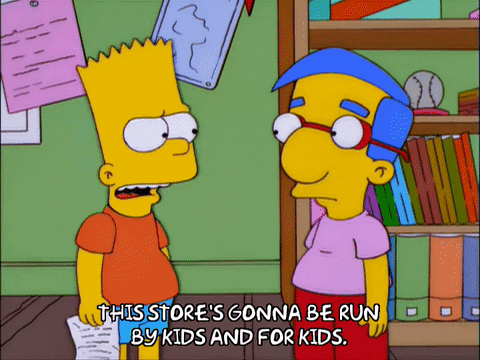
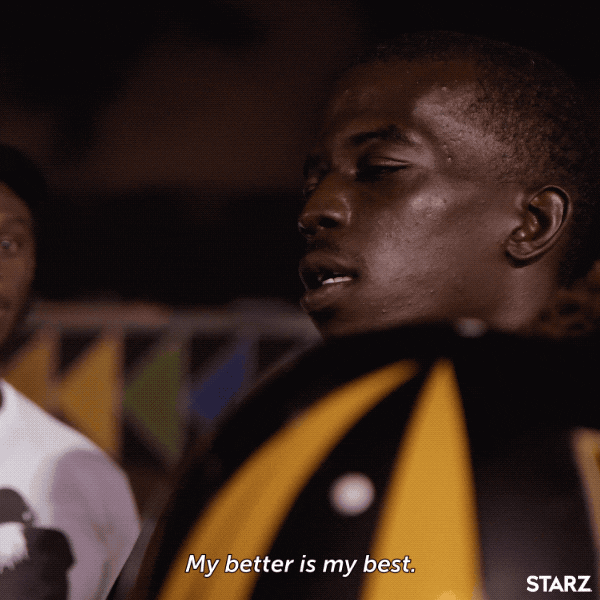

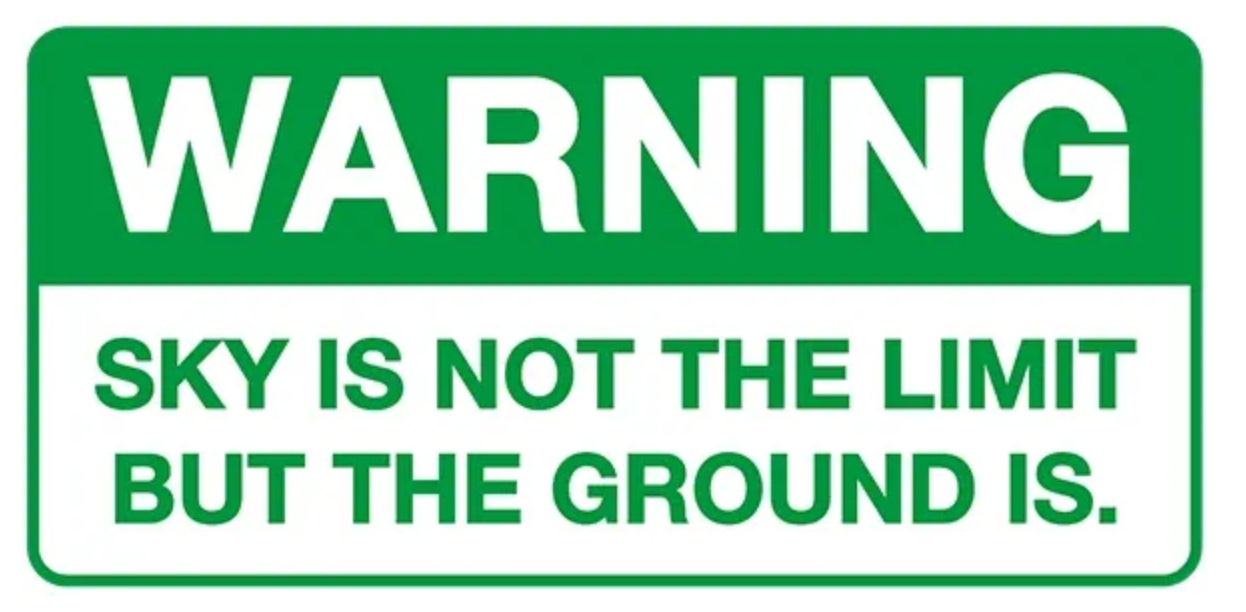
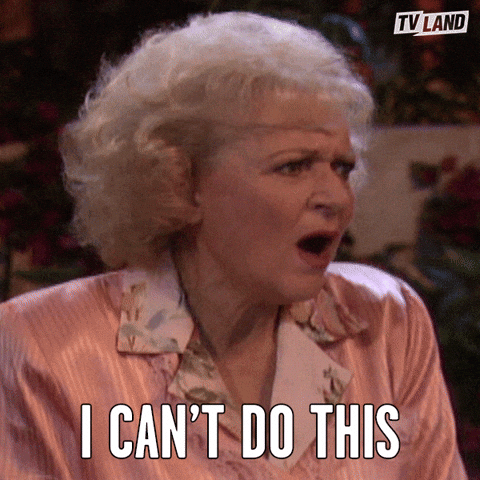
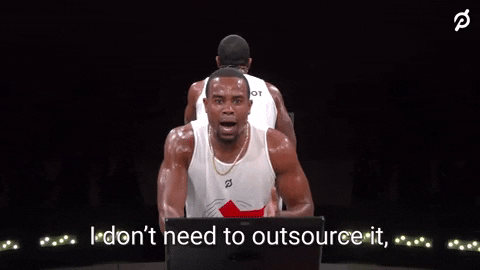
This has been the theme of my last 2 weeks in some version or another. It goes along with you get the love you think you deserve which this explains beautifully. This point of view is game changing.
Wow, reading this made me think of so many aspects of my life. The past, the present and the future in a way I hadn’t expected. This really made me question the person I am today who is she really? A mix of my mother’s fears and limitations placed on me and western pursuit of individualism? I hope this challenged other readers like myself to reflect inward to discover who they really are past the current perception of themselves.